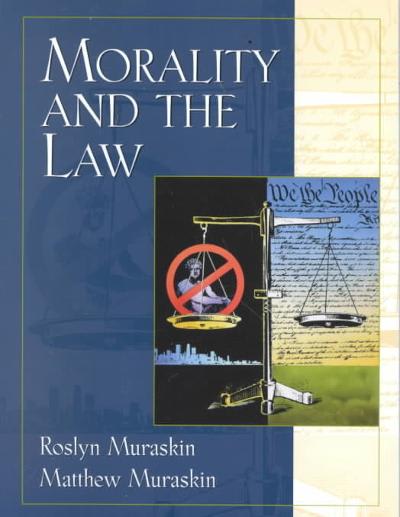Question
Lawyers and paralegals often hear one side of a story from either a potential client, client, or witness. In these situations, it is important to
Lawyers and paralegals often hear one side of a story from either a potential client, client, or witness. In these situations, it is important to be able to apply the legal principles you have learned to determine if those facts support a particular cause of action and/or defense. In this assignment, review the following fact pattern and determine whether sufficient facts exist for each party to raise a cause of action for negligence and/or comparative negligence. You should discuss the duty, breach, causation and damages associated with each party's negligence as well as any other concept (comparative negligence, eggshell skull, gross negligence, negligence per se, etc.) we have studied thus far that is applicable to the fact pattern. No credit will be given for raising issues that are not supported by the facts.
Tom is driving fifty-five (55) miles per hour (MPH) down a four-lane rural road (two lanes in each direction) where the posted speed limit is 60 MPH when he enters the town of Phillipsburg. Tom is in the far, right hand lane of the road. Shortly after entering the town, Tom notices a sign reading "Speed Limit 35 MPH Ahead" so he applies his brakes to slow for the upcoming change in the speed limit. As he is slowing, Tom notices there are several children kicking a soccer ball amongst themselves in a yard adjacent to the road Tom is driving on. One child, who looks to be about nine years old, abruptly runs into the street in front of Tom chasing an errant soccer ball. Although Tom is still 100 feet or more from the child, he immediately swerves to his left into the adjacent lane of traffic. Just as Tom swerved into that left lane, Steve was attempting pass Tom in that left lane. To avoid striking Tom, Steve also swerves to the left, entering a lane of traffic that is traveling in the opposite direction. Kim is driving in that opposing lane when Steve abruptly swerves in front of her. Kim does not break so she strikes Steve head-on, killing both Kim and Steve instantly
Explain Negligenceper se;identify which party(ies) from the fact pattern, if anyone, meet that definition; and explain why identified those party(ies) or did not identify a party.
2. Explain the Substantial Factor Test; identify which party was the substantial cause of the fatal collision between Steve and Kim; and explain why you identified that party.
3. Explain the difference between gross negligence and willful, wanton and reckless conduct; identify any party(ies) in the fact pattern who either acted or failed to act in a grossly negligent or reckless manner; and explain why made the identification(s) or did not identify a party.
4. Explain the Eggshell Skull Doctrine and indicate why it is or isn't applicable to this fact pattern.
5. Explain South Carolina's form of the Comparative Negligence defense; identify which party(ies), if any, can raise such a defense; and if you believe Comparative Negligence is applicable to the fact pattern, identify the party who bears the greatest degree of negligence.
Step by Step Solution
There are 3 Steps involved in it
Step: 1

Get Instant Access to Expert-Tailored Solutions
See step-by-step solutions with expert insights and AI powered tools for academic success
Step: 2

Step: 3

Ace Your Homework with AI
Get the answers you need in no time with our AI-driven, step-by-step assistance
Get Started


